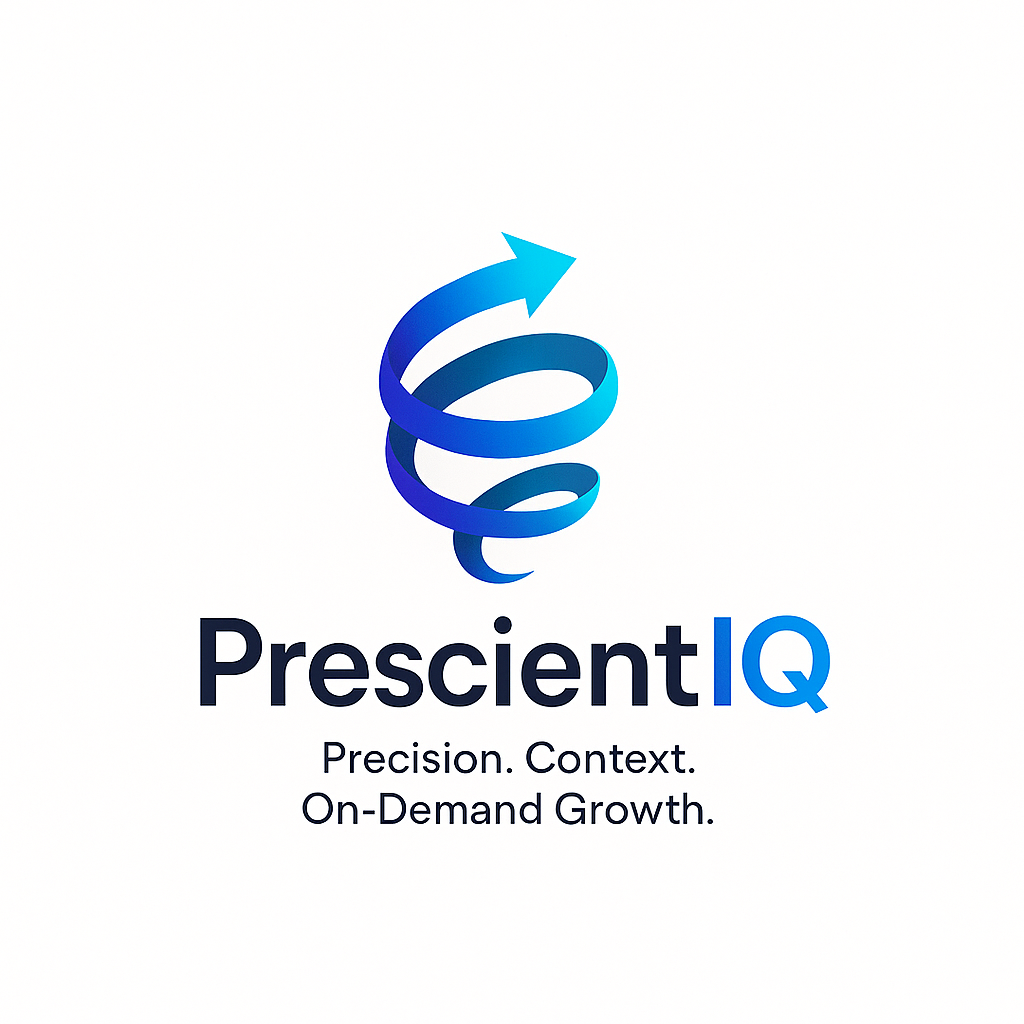In the rapidly evolving digital landscape, AI-powered marketing tools and platforms have become pivotal for businesses aiming to stay ahead.
These technologies not only streamline operations but also enhance the efficacy of marketing strategies.
This article delves into the core aspects of AI in marketing, focusing on lead generation and nurturing, customer segmentation and targeting, content creation and personalization, marketing campaign management, and performance analysis and reporting.
Lead Generation and Nurturing
The AI Edge in Lead Generation
AI has significantly transformed lead generation, enabling businesses to identify potential customers with unprecedented precision.
By analyzing vast datasets, AI tools can predict customer behavior and identify leads that are more likely to convert. This predictive capability ensures that marketing efforts are not just broad but targeted, maximizing return on investment (ROI).
Nurturing Leads with AI
Once leads are generated, nurturing them is crucial for conversion. AI-powered platforms assist in this by automating personalized communication.
Chatbots and AI-driven email campaigns can provide timely and relevant information to leads, keeping them engaged and moving them smoothly through the sales funnel.
Nurturing Leads with AI: Beyond Human Ability

Seeking ways to improve our lead nurturing process. While our current AIProdPad, AIBrandPad, and AIContentPad packages have been effective with pre-deterministic workflows, their capabilities have a distinct limit.
It simply cannot replicate the flexibility and adaptability of human interaction. Enter the Matrix Sales Framework, a groundbreaking AI-powered solution that empowers us to nurture leads in a way that surpasses human limitations with conversational AI.
Matrix Sales Framework takes us beyond the constraints of traditional lead nurturing:
1. Dynamic Personalization:
Unlike the rigid workflows HubSpot, Matrix’s framework leverages AI to personalize every touchpoint for each lead. It analyzes their unique data points, including demographics, behavior patterns, and engagement metrics, to tailor the messaging, content, and communication cadence.
This dynamic approach ensures each lead receives the most relevant and engaging experience, significantly boosting conversion rates.
2. Uncovering Hidden Patterns:
The Matrix framework delves deep into data to uncover hidden patterns and insights invisible to even the most experienced human marketer.
This includes identifying subtle correlations between lead behavior and conversion likelihood, allowing us to predict which leads are most likely to convert more accurately. This enables us to prioritize our efforts and maximize our return on investment.
3. Continuously Learning and Evolving:
Unlike static pre-programmed workflows by HubSpot or Marketo, the Matrix framework continuously learns and improves.
It analyzes the results of every interaction and adapts its strategies accordingly. This ensures our lead nurturing remains effective even as market trends and customer preferences evolve.
4. Automating Repetitive Tasks:
The Matrix framework frees up our human marketing team from the burden of repetitive tasks, such as sending follow-up emails and scheduling calls.
This allows them to focus on higher-level strategic activities, like developing creative content and building relationships with key partners.
5. 24/7 Lead Engagement:
While humans have limited daily hours, the Matrix framework can engage with leads around the clock. This ensures that even leads who engage outside traditional business hours receive the information and support they need, ultimately leading to a faster sales cycle.
The Matrix Sales Framework is more than just a tool; it’s a paradigm shift approaching lead nurturing. It empowers us to go beyond the limitations of human ability and create a truly personalized and intelligent experience for every lead.
This increases our conversion rates, fosters stronger customer relationships, and builds brand loyalty.
While the AIProdPad, AIBrandPad, and AIContentPad packages served us well, the Matrix framework represents a quantum leap forward in lead nurturing.
It allows us to unlock the full potential of our sales funnel and achieve unprecedented results. The future of AI-powered lead nurturing and its possibilities for our business.
Customer Segmentation and Targeting
AI’s Role in Understanding Customer Diversity
Understanding and segmenting customers is a cornerstone of effective marketing. AI excels in analyzing customer data points to create detailed customer profiles.
This segmentation allows for more targeted marketing efforts, ensuring the right message reaches the right audience at the right time.
Unlocking Customer Diversity Through AI
Understanding your customers’ unique backgrounds and perspectives is crucial for business success in today’s diverse marketplace.
AI can be a powerful tool to enhance this understanding, enabling you to personalize your offerings and build stronger customer relationships. Here are some ways AI empowers you to dive deeper into customer diversity:
Unveiling Hidden Patterns:
AI algorithms can analyze vast amounts of customer data, uncovering hidden patterns and trends that traditional methods might miss. This data can include demographics, purchase history, online activity, and social media interactions. By analyzing these data points, AI can identify previously unknown segments within your customer base, each with distinct preferences and needs.
Unmasking Implicit Bias:
Unconscious bias can unknowingly influence decision-making and lead to missed opportunities.
AI can help identify and mitigate implicit bias by analyzing data objectively and highlighting potential biases in marketing campaigns, product development, and customer service interactions. This allows for fairer and more inclusive practices, ensuring you cater to all your customers’ needs.
Tailoring Your Message:
AI can personalize marketing messages and content to resonate with specific customer segments. This includes tailoring language and visuals and offers to match each group’s cultural backgrounds, values, and preferences.
You can build stronger connections and increase engagement with your diverse customer base by delivering relevant and culturally sensitive messaging.
Enabling Inclusive Product Development:
AI can analyze customer feedback and usage data to identify areas where your products or services might not be inclusive or accessible to certain segments.
This data-driven insight allows you to develop more inclusive features and functionalities that cater to the diverse needs of your customers, ensuring everyone feels valued and included in your brand experience.
Building Cultural Awareness:
AI can provide insights into cultural nuances and preferences by analyzing social media conversations, online reviews, and customer feedback.
This knowledge can be used to train employees on cultural competency, ensuring they can interact with customers from diverse backgrounds respectfully and effectively.
Utilizing AI to understand customer diversity is not just about boosting business metrics; it’s about creating a more inclusive and equitable marketplace.
By embracing AI’s potential, businesses can build stronger connections with diverse customers, fostering a sense of belonging and loyalty.
Enhanced Targeting Strategies
AI-driven customer segmentation leads to enhanced targeting strategies.
By understanding customer preferences and behaviors, AI tools can tailor marketing messages, ensuring higher engagement rates.
This level of personalization was once a painstaking manual task but is now achievable at scale thanks to AI.
Content Creation and Personalization
Revolutionizing Content with AI
Content creation is another area where AI is making significant strides. AI-powered content creation tools can generate articles, social media posts, and video scripts.
This speeds up the content creation process and ensures consistency and relevance in messaging.
Personalization at Its Peak
Beyond creation, AI excels in content personalization. AI can tailor content to match individual tastes by analyzing user interactions and preferences.
This personalization extends from email marketing to website experiences, making every interaction unique and engaging for the user.
Marketing Campaign Management
Streamlining Campaign Management with AI
Marketing campaign management can be complex, but AI simplifies it. From scheduling posts to optimizing ad spend, AI tools can automate and optimize many aspects of campaign management.
This not only saves time but also improves the effectiveness of marketing campaigns.
AI-Driven Decision Making
AI’s ability to analyze large datasets quickly enables more informed decision-making in campaign management.
Marketers can rely on AI insights to adjust real-time campaigns, ensuring they remain effective and relevant.
AI-Driven Decision Making: The CMO’s Secret Weapon
In today’s hyper-competitive landscape, data-driven decision-making is no longer a luxury; and it’s a necessity. And when it comes to harnessing the power of data, AI is emerging as the ultimate game-changer.
AI-driven decision-making is critical to achieving superior results in every facet of marketing.
Here’s why:
1. Unprecedented Insights:
AI algorithms unlock a previously unimaginable data analysis level. By processing vast datasets, including customer behavior, campaign performance, and market trends, AI gives us a holistic understanding of our target audience and the broader market landscape.
This enables us to identify hidden patterns, predict future outcomes, and make informed decisions that drive measurable results.
2. Personalization at Scale:
Gone are the days of one-size-fits-all marketing. AI empowers us to deliver truly personalized experiences to every customer.
Through real-time analysis of individual preferences, AI helps us tailor messaging content and offers to resonate deeply with each customer, building stronger relationships and fostering loyalty.
3. Automation Efficiency:
AI automates tedious tasks like ad campaign optimization, content creation, and lead scoring, freeing up valuable time and resources for our marketing teams.
This allows us to focus on strategic planning, creative development, and customer engagement, maximizing our return on investment and achieving greater efficiency.
4. Predictive Power:
AI’s ability to predict future trends and customer behavior empowers us to be proactive rather than reactive.
By anticipating customer needs and market shifts, we can make strategic decisions in advance, optimize resource allocation, and stay ahead of the competition.
5. Continuous Optimization:
AI-driven decision-making is not a static process. It’s an ongoing cycle of learning and improvement.
By constantly analyzing data and measuring results, AI provides valuable feedback that allows us to refine our strategies and optimize campaigns in real time. This ensures we are always delivering the best possible experience for our customers.
AI is a powerful tool that can revolutionize the way we approach marketing.
By embracing AI-driven decision-making, we can unlock new levels of customer understanding, deliver personalized experiences, optimize our operations, and drive sustainable growth and success.
Performance Analysis and Reporting

Measuring Success with AI
The final piece of the AI marketing puzzle is performance analysis and reporting. AI tools offer advanced analytics that provides deeper insights into campaign performance.
This includes metrics like clicks and impressions and more nuanced insights like customer sentiment and brand impact.
AI for Enhanced Reporting
With AI, reporting becomes more comprehensive and actionable. Automated reporting tools can generate detailed performance reports, highlighting successes and areas for improvement. This enables marketers to refine their strategies for better results continuously.
Integrating AI into marketing tools and platforms is not just a trend; it’s a paradigm shift in marketing. From generating and nurturing leads to creating personalized content and managing intricate marketing campaigns, AI is at the forefront, driving efficiency and effectiveness.
As these technologies continue to evolve, the potential for AI in marketing seems limitless, promising even more innovative and impactful ways to connect with customers.

